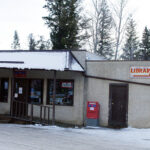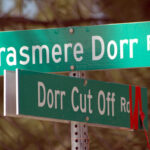Home »

Reading Burke again like finding a long-lost friend
Book Review
By Derryll White
Burke, James Lee (1987). The Neon Rain.
This is the first of James Lee Burke’s novels to feature Dave Robicheaux, a Lieutenant with the New Orleans police department.
 First and foremost, Burke is an exceptional writer. He has paid his dues, writing many, many short stories and collecting a large number of rejection slips before ‘The Neon Rain’ got into print. But how very fortunate that it finally did! Burke is one of the best scribes of place I know of. He makes New Orleans pulse with life and the Louisiana bayous breathe for the reader. When my partner was very sick, struggling with brain cancer, she had me read Steinbeck and Burke to her, hour after hour. She would lose herself in Burke’s rich descriptions of mist on the bayous and sun on the luxuriant flowers. He is that good. Reading him again is the same as finding a long-lost friend.
First and foremost, Burke is an exceptional writer. He has paid his dues, writing many, many short stories and collecting a large number of rejection slips before ‘The Neon Rain’ got into print. But how very fortunate that it finally did! Burke is one of the best scribes of place I know of. He makes New Orleans pulse with life and the Louisiana bayous breathe for the reader. When my partner was very sick, struggling with brain cancer, she had me read Steinbeck and Burke to her, hour after hour. She would lose herself in Burke’s rich descriptions of mist on the bayous and sun on the luxuriant flowers. He is that good. Reading him again is the same as finding a long-lost friend.
Right from the beginning Cajun Dave Robicheaux is Everyman. He soaks up more punishment than most of us would ever want to, true. But his values, his reactions, are what most of us also hold to. Protect your woman above all else. Don’t take any crap from any level of authority or any crook on either side of the law. Stick with and defend your true friends, no matter the cost.
Robicheaux’s world is bruised – distorted by the Vietnam War, by the corruption within the New Orleans police department, by the cracker attitudes of Louisiana white trash. But is spite of all the demons Robicheaux harbours, he comes out a man most of us would emulate in similar situations.
Burke tells a straight-up story about crime, the weaknesses of society and the weaknesses of people. It is rich, and over the top in its action, but the excesses are forgiven as the reader appreciates the intriguing character development and the exquisite richness of the writing. And when it gets really rough, the reader realizes that Robichaeux’s girlfriend, Annie, is every man’s dream.
James Lee Burke puts his finger solidly on America’s pulse. And in the end he says the nation is sick – Vietnam, the Mafia, bureaucratic and corporate greed and corruption. But through all of that he still has the strength to show the hope of new beginnings. Whether it is the A.A. program, the love of a good woman, or the strength of family – Burke finds the chords that let all of us go on to a new and better day.
This book is relatively old, but it is still available by order at Lotus Books, and my suggestion is that you give it a try. Burke is a strong and beautiful writer with a solid body of work that follows this which the discriminating reader will enjoy.
********
Excerpts from the novel:
LOUISIANA WILD – Two weeks before I had been fishing in a pirogue on Bayou Lafourche, flycasting popping-bugs along the edge of lily pads that grew out from the banks. The shore was thickly lined with cypress trees, and it was cool and quiet in the green-gold morning light that fell through the canopy of limbs overhead. The lily pads were abloom with purple flowers, and I could smell the trees, the moss, the wet green lichen on the bark, the spray of crimson and yellow four-o’clocks that were still open in the shade. An alligator that must have been five feet long lay up close to some cypress roots, his barnacled head and eyes just showing above the waterline like a brown rock.
NEW ORLEANS – It was hazy and bright when we drove into the Quarter. There was no breeze, and the palm fronds and banana trees in the courtyards were green and motionless in the heat. As always, the Quarter smelled to me like the small Creole town on Bayou Teche where I was born; the watermelons, cantaloupes, and strawberries stacked in crates under the scrolled colonnades; the sour wine and beer and sawdust in the bars; the poor-boy sandwiches dripping with shrimp and oysters; the cool, dank smell of old brick in the alleyways.
CHARACTER – The father was gray and old and walked with a cane as though his back was disjointed. He smelled of the cob pipe in his shirt pocket. His eyes were scaled over and frosted with cataracts.
IMPENDING DEATH – I knew that all my past fears of being shotgunned by a psychotic, of being shanked by an addict, of stepping on a mine in Vietnam, were just the foolish preoccupations of youth; that my real nemesis had always been a redneck lover who would hold me upside down against his chest while my soul slipped through a green, watery porcelain hole in the earth, down through the depths of the Mekong River where floated the bodies of other fatigue-clad men and whole families of civilians, their faces still filled with disbelief and the shock of an artillery burst, and farther still to the mossy base of an offshore oil rig in the Gulf of Mexico, where my father waited for me in his hardhat, coveralls, and steel tipped drilling boots after having drowned there 20 years ago.
RULES TO LIVE BY – “What happens outside of us doesn’t count. That’s something we don’t have control over. It’s what we do with it, the way that we react to it, that’s important.”
MURDER – I’m convinced that, unlike most of the hapless and pathetic people with whom we usually dealt with, he was truly an evil man, but anyone who has ever fired a weapon at another human being knows the terrible adrenaline-fed sense of omnipotence and arrogance that you feel at that moment and the secret pleasure you take in the opportunity being provided you. I had done it in Vietnam; I had done it twice before as a police officer, and I knew that simian creature we descend from was alive and well in my breast.
JUSTICE – “Annie, in the real world we fry paupers in the electric chair and send priests to prison for splashing chicken blood on draft files. It’s the nature of ritual. We deal with the problem symbolically, but someone has to take the fall.”
LOVE – “Loving somebody is being there when nobody else is. When it’s not even a choice. You should understand that, Dave.”
RESPONSIBILITY – It’s facile to blame the Supreme Court for the pornographic bookstores and the live sex shows. They usually exist because somebody on the zoning board is getting greased. Kids don’t do dope because their parents and teachers are permissive. They do it because adults sell it to them. No psychological complexities, no sociological mysteries.
POLITICS – “The man running the bar is an interesting guy too,” he said. “He’s from a little village in Guatemala. One day the army came to the village and without provocation killed 16 Indians and an American priest from Oklahoma named Father Stan Rother. For kicks they put the bodies of the Indians in a U.S. Army helicopter and threw them out at high altitudes.”
THE PAST – …I reflected upon the ambiguous importance of the past in our lives. In order to free ourselves from it, I thought, we treat it as a decaying memory. At the same time, it’s the only measure of identity we have. There is no mystery to the self; we are what we do and where we have been. So we have to resurrect the past constantly, erect monuments to it, and keep it alive in order to remember who we are.
MY LAI, VIETNAM – This was the war that an American President called a holy cause.
I knew that I would always be caught in that lens, too, locked inside a frame of film that people would never be able to deal with, because to deal with it would require an admission of responsibility that would numb an entire nation.
That is why the word obsession is a convenient one in the analytical vocabulary. We apply it to those who were trapped inside the camera, who can never extricate themselves from those dark periods in history that were written for them by somebody else.
 – Derryll White once wrote books but now chooses to read and write about them. When not reading he writes history for the web at www.basininstitute.org.
– Derryll White once wrote books but now chooses to read and write about them. When not reading he writes history for the web at www.basininstitute.org.







